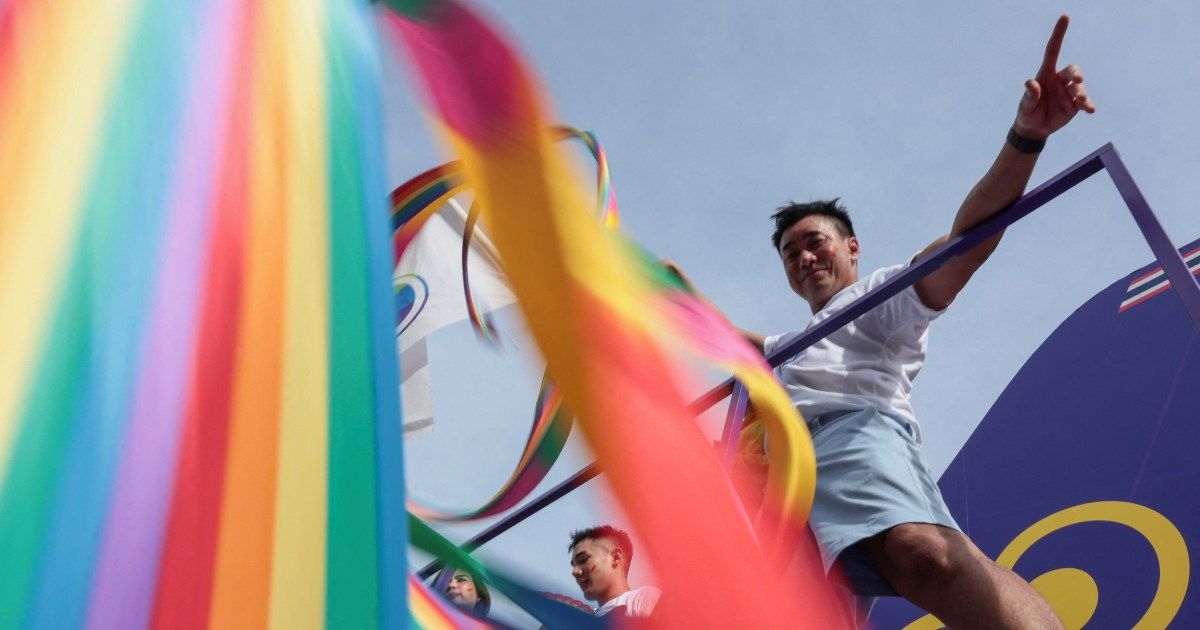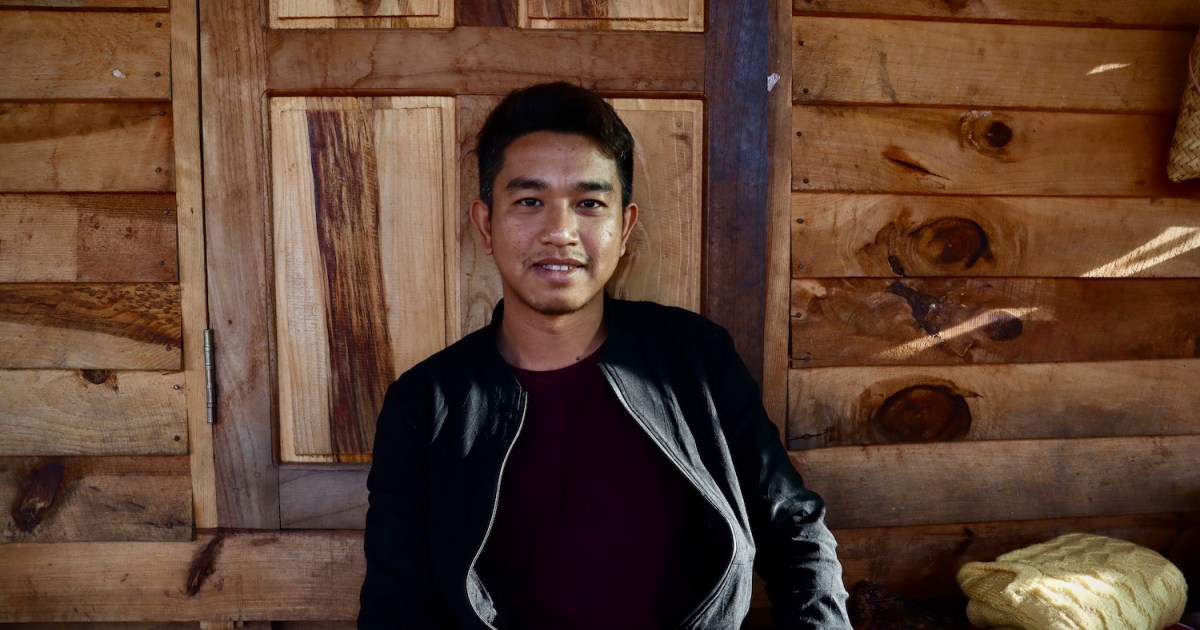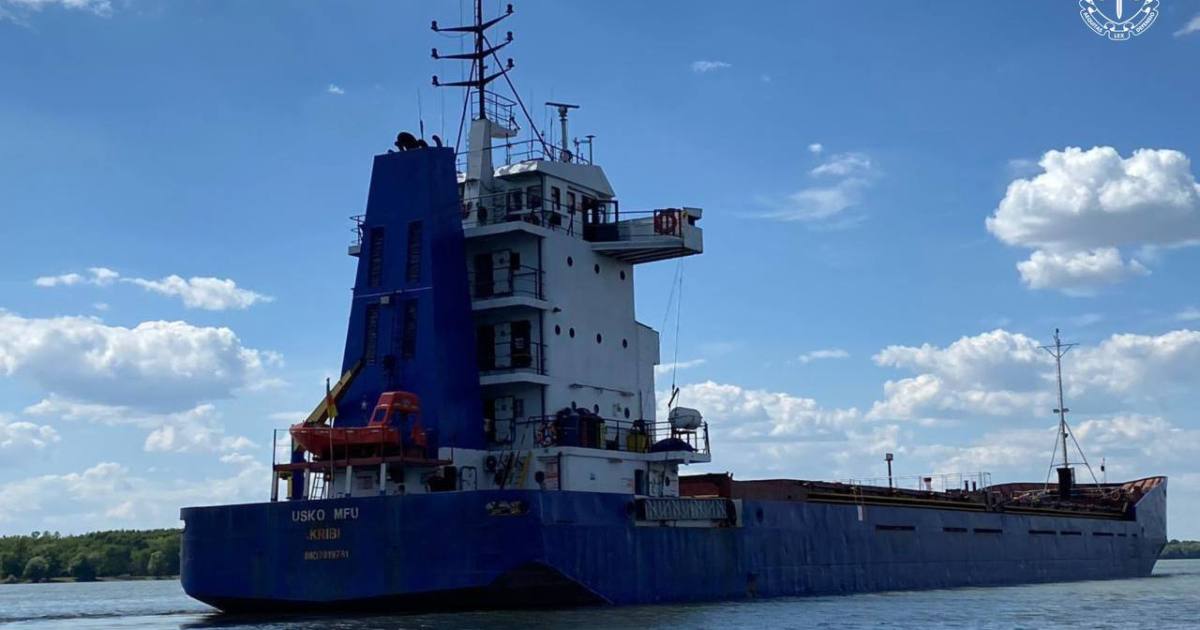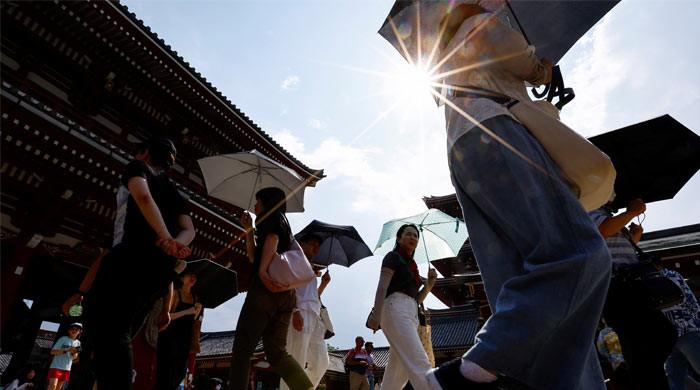Bangkok, Thailand – For three decades, Dujruedee Thaithumnus has presided over symbolic same-sex weddings on the white sand beaches of Samui Island, Thailand.
As Thailand prepares to legalize LGBTQ Dujruedee hopes to officiate at legally recognised ceremonies for the first time and cash in on the “pink baht”.
“Samui has the entire ecosystem needed to organise weddings, the island is a unique place. I have no doubt that after the law is passed, we will be on the world map as an LGBTQ wedding destination,” Dujruedee, who charges between $1,000 and $50,000 for her beach packages, told Al Jazeera.
“There are no words to describe how excited I am,” Dujruedee said.
After years of failed attempts, Thailand's marriage equality bill passed its final parliamentary hurdle last month.
To become law, the bill must still receive royal assent, a step widely seen as a formality.
Once the law comes into effect, Thailand will be one of only three places in Asia where same-sex couples will be able to marry, along with Taiwan and Nepal.
Campaigners hope the first same-sex weddings will take place as early as October.
As the law finally catches up with Thai society's widely accepting attitudes toward sex and gender, countless businesses — from wedding planners to hotels, shopping malls, medical institutions and mortgage brokers — are poised to benefit.
In addition to opening up new revenue streams for event planning companies, the law will grant LGBTQ couples legal recognition of joint ownership of property, mortgages and insurance plans for the first time, bringing a new stream of consumers into the realm of financial services that have long been denied to them.
Ploy Rahong, a real estate agent on Samui Island who plans to marry her girlfriend in October, said the legal change has made her think about how to target sales of homes, island getaways, assisted living and retirement communities to the LGBTQ community.
“We want to create something special on the island, specifically for these couples,” he told Al Jazeera.
While government estimates vary, Thailand's month-long Pride celebrations, which are most visible in Bangkok, Phuket, Pattaya and Chiang Mai, are estimated to generate up to $120 million in additional tourism and spending.
In a flurry of rainbow flags and floats, Bangkok on Sunday brought down the curtain on its Pride month festivities, billed by Thai authorities as the largest of their kind in Asia, with parades, drag queen contests, art exhibitions, pop-up markets and concerts.
Thailand's Prime Minister Srettha Thavisin strongly supported the law, seeking a rare political victory and an economic boost for Southeast Asia's second-largest economy, which has struggled to match the post-pandemic recoveries of its regional peers.
Thailand's central bank has forecast the economy will grow a tepid 2.6 percent this year, down from 1.9 percent in 2023, but still behind its neighbors Malaysia and Indonesia.
“The government is keen to support the Pride Festival… to boost the nation’s economy, especially when it comes to stimulating tourism,” Srettha said at the start of the closing Love Pride Parade on Sunday.
Thailand will formally submit its bid to host World Pride in 2030 at the end of July.
Thongnakarin Sukvatanachaiwongs, co-founder of Prism, an EDM festival aimed at LGBTQ audiences, said he estimates that festivals organized in Thailand and aimed at the community are currently worth around $10 million a year.
“There's likely to be a lot more once we bring in the global community as well,” he told Al Jazeera.
“If done right, the pink economy has a lot to offer. Look at Taiwan Pride, which is growing every year and is driving the economy… we are heading in that direction.”
Still, the growing commercialization of Thailand's relatively liberal LGBTQ scene has not been without its skeptics.
“It's only natural that all malls in Thailand are jumping on this Pride trend,” a brand manager at one of the kingdom's largest retail groups told Al Jazeera, requesting anonymity because he was not authorised to speak to the media.
“At the same time, for shopping centres to survive, they can no longer limit themselves to sales and promotions, they also have to be perceptive about global issues, they have to be empathetic and loved by their customers.”

Still, many business owners are confident that the future is rosy.
At the Pink Power Up Business Forum in Bangkok last month, speakers highlighted Thailand’s strengths as a global market for everything from LGBTQ-focused film production to medical and beauty services.
“Thailand is already one of the top destinations for the LGBTQ community,” Manatase Annawat, chairman of Thailand Privilege, a company under the Tourism Authority of Thailand that aims to attract expatriates to settle in the country, told Al Jazeera.
“Imagine that after the bill is passed, Thailand could become the center of the world for the community.”
Nikki Phinyapincha, a trans entrepreneur who founded Thailand's first and only diversity, equity and inclusion agency, said there is a growing understanding that increasing tolerance in society extends to consumers as well.
“I believe Thailand can become the first pink tiger nation… a destination for global equality.”












